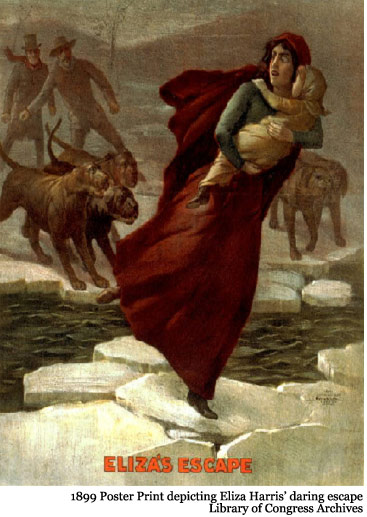“Good night, good night!
Parting is such sweet sorrow,
That I shall say good night
Till it be morrow.”
So said Juliet to her Romeo, not knowing where a balcony moment of affection would lead. To truly love, is to open ourselves up to both extremes of sweet ecstasy and crushing sorrow. Shakespeare’s timeless play is at once beautiful and agonizing for that reason.
We want it to end differently.
Love between people is a cosmic mystery. It’s a vibrant, potent connection. Did you feel the chemistry between pair skaters, Tatiana Volosozhar and Maxim Trankov, performing at the Sochi Winter Olympics?
And of course, it’s more expansive than romantic love. Have you watched any soldiers-returning-home clips on YouTube? Millions have. Children and fathers…mothers and sons…families reuniting after long separations. Tears weave down my cheeks, though I really don’t know them.
Parting ways for a season is hard, but completely losing our connection of love is worse.
I recently saw a documentary called, The Amish: Shunned. The story “follows seven people who have chosen to leave their closed and tightly-knit communities for the outside world. Each has paid deeply for their decision. Estranged from loved ones, these former Amish find themselves struggling to make their way.” The loss of connection and community seems to be much harder for these “prodigals,” than any challenge of the modern world.
An all or nothing choice is wrenching. I felt it in my gut as I watched. Still their families set a place for them at their dinner tables every night.
Six of the seven never returned.
Connections are abruptly interrupted by abandonment, divorce, or suicide.
Dementia, Alzheimer’s, and mental illness gradually rob our connectedness to loved ones, in a long-slow-goodbye kind of way.
And death is so devastatingly final while we’re here on earth.
 Author, Mike Mason, describes listening to his mother’s voice on a tape recording after her death. “Death, it is said, wonderfully concentrates the mind. Sadly and paradoxically, we never practice a person’s presence so intently as when that one is gone. It’s almost as if, by summoning all our powers of memory and concentration, we could bring that person back and keep him or her with us…Why had I never noticed this before? In all the years of listening to my mother’s voice, never had I heard her this way. Never before had I fallen in love with the mere sound of her voice.”
Author, Mike Mason, describes listening to his mother’s voice on a tape recording after her death. “Death, it is said, wonderfully concentrates the mind. Sadly and paradoxically, we never practice a person’s presence so intently as when that one is gone. It’s almost as if, by summoning all our powers of memory and concentration, we could bring that person back and keep him or her with us…Why had I never noticed this before? In all the years of listening to my mother’s voice, never had I heard her this way. Never before had I fallen in love with the mere sound of her voice.”
Heroic and sacrificial things are done, fiercely protecting our connection of love.
 Remember the story of Eliza, the runaway slave in Uncle Tom’s Cabin? Though the book is fiction, most of the characters and situations were based on true stories. The incident of a slave mother carrying her child across the broken ice on the Ohio River was a well-know fact.
Remember the story of Eliza, the runaway slave in Uncle Tom’s Cabin? Though the book is fiction, most of the characters and situations were based on true stories. The incident of a slave mother carrying her child across the broken ice on the Ohio River was a well-know fact.
If it were your child, about to be torn from your arms by a brutal slave trader, how emboldened would you be? Author, Harriet Beecher Stowe, wrote this account:
“How many miles could you make in those few brief hours, with the darling at your bosom—the sleepy head on your shoulder—the small, soft arms holding trustingly to your neck?
“As a fire in her bones, the thought of her pursuer urged her on; and she gazed with longing eyes on the sullen surging waters that lay between her and liberty.
“The trader caught a full glimpse of her, just as she was disappearing down the bank…he was after her like a hound after a deer. In that dizzy moment, her feet…scarce seemed to touch the ground, and a moment brought her to the water’s edge…Nerved with strength such as God gives only to the desperate, with one wild cry and flying leap, she vaulted sheer over the turbid current by the shore, on to the raft of ice beyond. It was a desperate leap—impossible to anything but madness and despair.
“A huge green fragment of ice on which she alighted pitched and creaked as her weight came on it, but she staid there not a moment. With wild cries and desperate energy she leaped to another and still another cake—stumbling—leaping—slipping—springing upwards again! Her shoes are gone—her stockings cut from her feet—while blood marked every step. But she saw nothing, felt nothing, till dimly, as in a dream, she saw the Ohio side, and a man helping her up the bank.”
This mystical and pulsating connection of one to another is part of our design. And some will do anything to keep from losing it, even when circumstances are beyond our control.
Stowe writes at the end of the book that truth is stranger than fiction. A missionary’s notebook told how many fugitive slaves ended up in Canada. “How can it be otherwise, when a system prevails which whirls families and scatters their members, as the wind whirls and scatters the leaves of autumn? These shores of refuge, like the eternal shore, often unite again, in glad communion, hearts that for long years have mourned each other as lost.” (Emphasis, mine.)
You see God is not a bystander. He too is fully engaged in this connection of love. He created us for this love. He wept over the death of Lazarus, knowing full well that God had the power to resurrect. He also rejoices at reunions. And that’s part of the great future and hope He alone can promise—that we will be together, that we will know each other, and that sorrow, separation, and loss will be no more.
“Your sun will no longer set, nor will your moon wane
For you will have the Lord for an everlasting light
And the days of your mourning will be over.”
(Isaiah 60:20, as shared by Renon Wood last week)
Is this promise enough to anchor you in your current losses?









yes oh yes when my believing is operating properly. but sometimes as paul or was it peter said, “help me with (in?) my unbelief. because it is in the scriptures, it must mean that we will struggle and doubt during life in these bodies made of mud. i wish i believed 100% of everyday of my life. but i take great comfort in knowing that even one who touched jesus and watched the miracles and looked in his eyes still dealt with unbelief. we think…”HOW COULD HE?” but he did.
Yes, I agree and think it quite normal to have doubts. And going on in faith also doesn’t mean hanging up our brains either. For me there is ample evidence that God’s promises are true–even just the wonder of creation. He knows what it’s like here. He knows we are dust, not super-dust. Thank you for your comment! Thank you for you!
Susan, once again I’m amazed at your gift of poignant writing, e.g., your brilliant Shakespeare opening. Your blog post shows how inspired words, and their progression, can knock readers off their feet with impact. They help us receive God’s deep love and embolden us share it with others. For “God is not a bystander,” and He wants us to enjoy His connecting love and presence forever.
Thank you Marilyn!